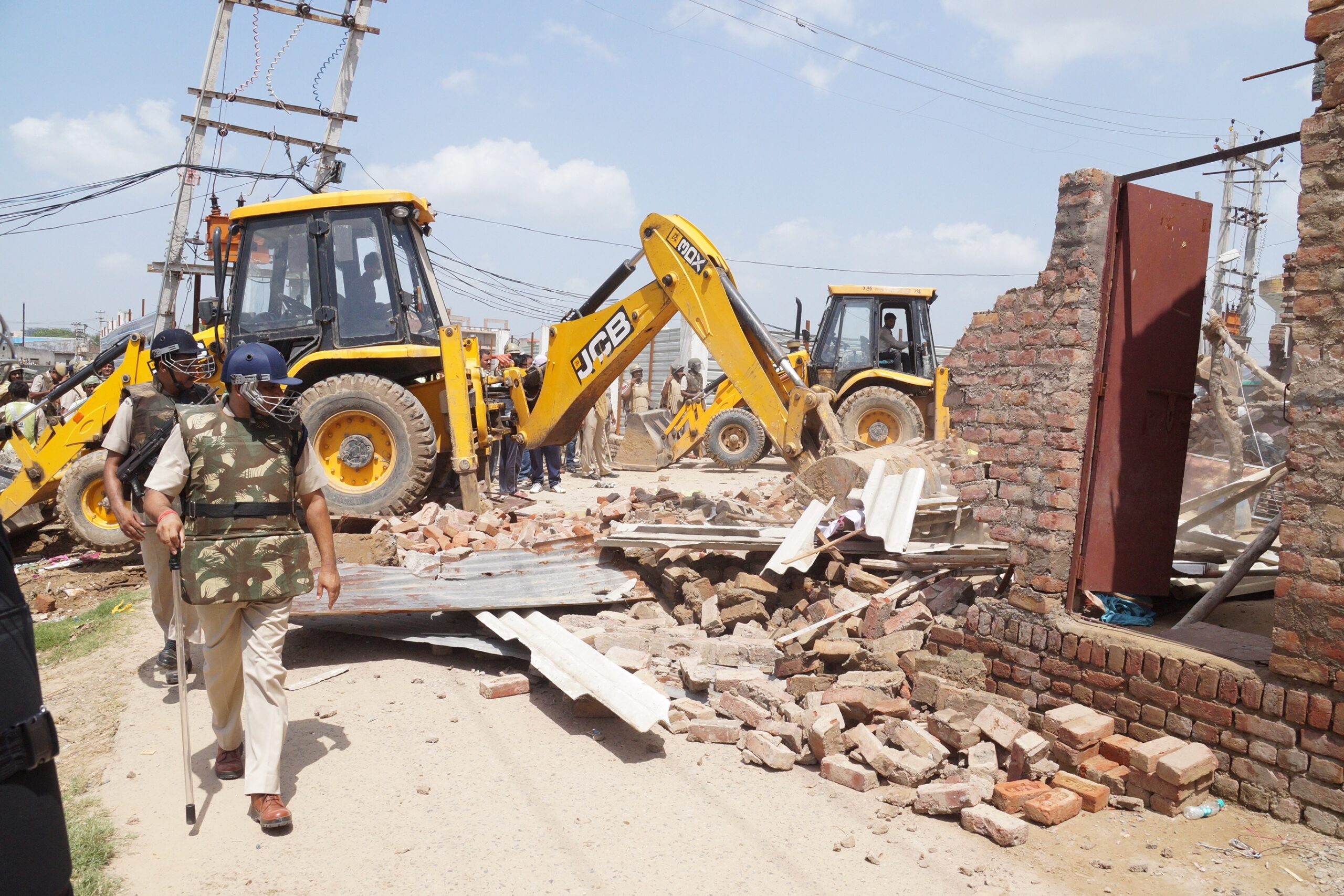
The recent ruling by India’s Supreme Court, condemning the use of demolitions as a punitive measure, has cast a spotlight on the disturbing trend of “bulldozer politics” in India. The ruling Bharatiya Janata Party (BJP) has been at the center of this issue, with numerous cases emerging in states under its governance where authorities have targeted Muslim properties for demolition under the guise of “illegal construction.” While demolitions have affected individuals from various backgrounds, reports indicate a disproportionately high impact on the Muslim community, often following communal unrest or protests. This article examines the troubling intersection of law, politics, and selective enforcement, as well as the recent Supreme Court intervention that challenges this trend.
The term “bulldozer justice” reflects a disturbing approach to law enforcement in which authorities use demolitions as a tool for punishment rather than for legal compliance. Instead of adhering to due process, individuals accused or suspected of wrongdoing are sometimes subjected to immediate property demolition—ostensibly for illegal construction but often with little or no prior warning. Critics argue this practice bypasses the judicial system, delivering extrajudicial “justice” that violates fundamental rights. Muslims, in particular, have found themselves disproportionately targeted by this approach. Following instances of communal violence or protests, it is often properties in Muslim-majority areas that are selected for demolition. Opposition leaders and human rights advocates contend that such demolitions are a form of collective punishment, intended to intimidate communities and stifle dissent. BJP leaders, however, deny these allegations, claiming that they represent a “tough on crime” policy that does not discriminate by religion.
In response to petitions highlighting the use of demolition as punishment, the Supreme Court of India issued a ruling that strictly prohibits demolishing homes or properties solely based on accusations of criminal activity. “The executive cannot become a judge and demolish properties,” the Court declared, adding that these practices “have no place in a constitutional democracy.” The Court’s directive is clear: authorities must provide at least 15 days’ notice before proceeding with any demolition, allowing property owners to respond or challenge the notice in court. Additionally, the notice must include a reason for demolition. This intervention from the judiciary is widely viewed as an attempt to restore procedural fairness and curb the use of bulldozer politics. Importantly, the Court’s warning about contempt charges for failing to follow these guidelines underscores the seriousness of this issue.
The pattern of demolitions has largely been observed in BJP-governed states, and their frequency raises questions about the motivations behind them. Observers note that bulldozer politics serves as a visual representation of “tough governance” and positions the BJP as an enforcer of law and order. However, the selective nature of the demolitions has led many to accuse the BJP of using this approach to further a divisive agenda.
The disproportionate targeting of Muslim properties following communal unrest has led many to argue that the BJP’s demolition drives are not about law enforcement but rather about asserting power over marginalized communities. By creating an atmosphere of fear, bulldozer politics has made it increasingly difficult for Muslims to voice dissent or protest without the risk of seeing their homes or businesses reduced to rubble.
For a country that prides itself on being a democratic republic, the phenomenon of bulldozer politics raises severe concerns about the erosion of constitutional rights. The right to property, the right to a fair trial, and the right to equality before the law are all endangered by these extrajudicial demolitions. Amnesty International praised the Supreme Court’s ruling as a significant step forward, calling it a “big win” against a “deeply unjust, widespread, unlawful and punitive” practice that has primarily targeted Muslims. Human rights activists argue that the targeting of Muslims reflects a troubling pattern of institutional bias. By perpetuating bulldozer politics, state authorities risk deepening societal divides and eroding public trust in law enforcement. Without consistent and impartial application of the law, India risks shifting from a constitutional democracy to a state where might makes right.
As India moves forward, the Supreme Court’s ruling provides a beacon of hope for those seeking an end to bulldozer politics. This decision not only calls for fair legal processes but also represents a challenge to authorities who misuse power to marginalize vulnerable communities. For India to remain true to its democratic ideals, implementing the Court’s guidelines effectively will be essential.
